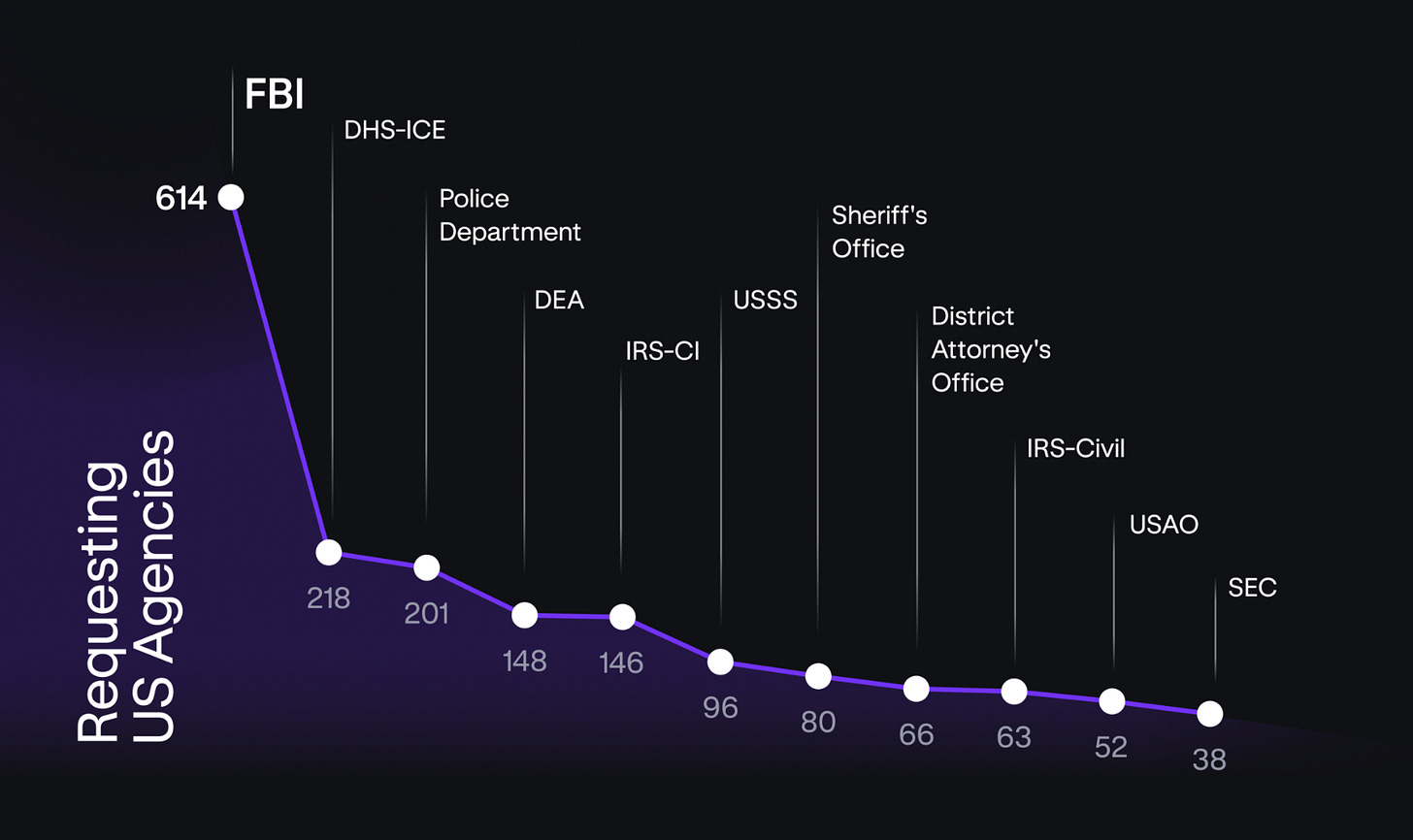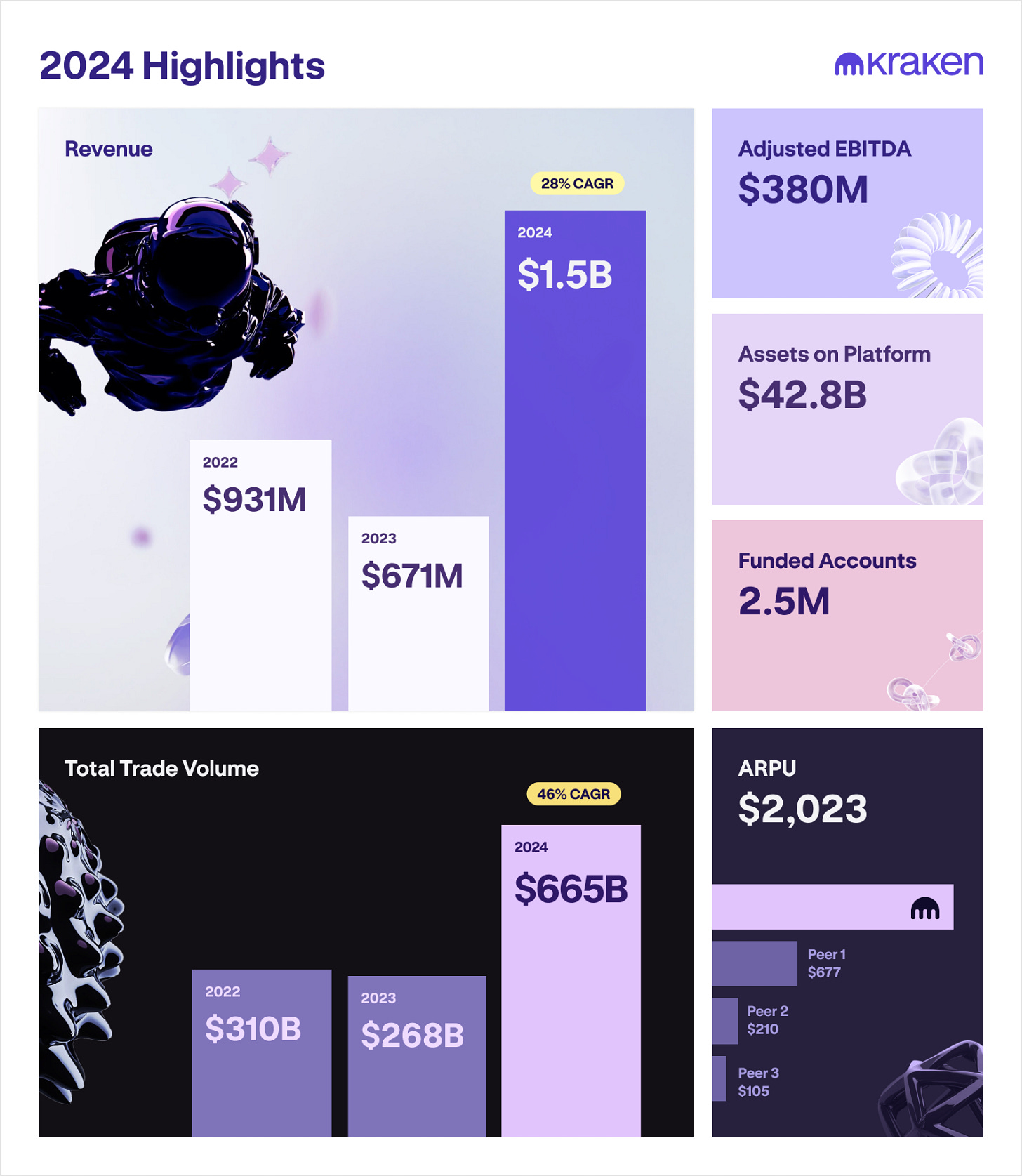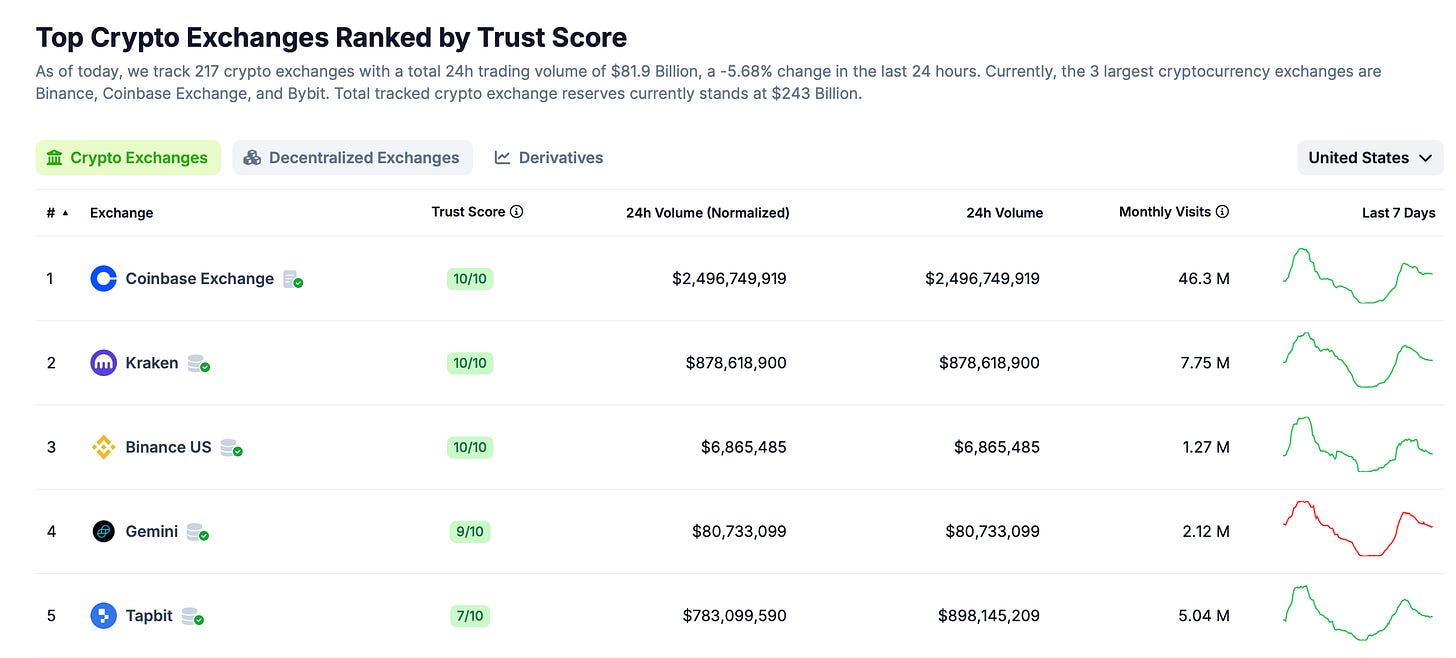Hello y’all. Happy Wednesday.
In early March, a San Francisco-based crypto exchange announced that the US Securities Exchange Commission (SEC) had dropped its lawsuit against them.
By the end of the month, that same exchange has completed a $1.5 billion acquisition of a traditional finance platform. Now it is reportedly exploring a $1 billion debt raise, ahead of a potential IPO.
The name? Kraken. The whiplash is real, but the strategy bears scrutiny.
When the SEC dropped its case against Kraken on March 3, it wasn't just Kraken that was liberated — the entire American crypto industry exhaled.
While the SEC's retreat marked a significant milestone, it's what happened next that deserves our attention.
Instead of taking a victory lap, Kraken immediately went on the offensive with a series of moves that reveal a company not just escaping regulatory constraints, but one with ambitions far beyond its crypto exchange origins.
Let's follow the money.
Crypto Taxes Made Easy (Finally)
Keeping up with tax rules, tracking every trade, and sorting through reports? No one signed up for that. Blockpit takes the headache out of crypto taxes so you can focus on what actually matters.
Here’s how
Automated tax reports that keep you compliant without the hassle
All your transactions in one place—no more spreadsheet nightmares
Exclusive 15% discount for The Token Dispatch subscribers
Works globally so you’re covered no matter where you trade
Get your crypto taxes done in minutes — before the deadline sneaks up.
Claim your exclusive discount and get started with Blockpit.
From Hunted to Hunter
On March 3, Kraken announced that the SEC had agreed to dismiss its lawsuit against the exchange "with prejudice, with no admission of wrongdoing, no penalties paid, and no changes to our business."
In Kraken's own words, the dismissal ended a "wasteful, politically motivated campaign" and cleared "the path toward a stable, forward-thinking regulatory regime."
Strong words from a company that spent most of 2024 under the regulatory microscope.
Last year, Kraken received 6,826 data requests from regulators and enforcement agencies across 71 countries — a 39% increase from 2023. The FBI alone issued 614 requests, while the SEC accounted for 37% of all US regulatory inquiries.
That level of scrutiny would paralyse most companies, but Kraken somehow managed to survive.
The exchange reported $1.5 billion in revenue for 2024, a staggering 128% increase from the previous year.
Kraken had developed an immune response to regulatory pressure.
So when the regulatory fever finally broke with the SEC case dismissal, Kraken was positioned for aggressive expansion rather than convalescence.
Once the hunter became the hunted, the hunted became the hunter.
The TradFi Shopping
On March 20, Kraken announced the acquisition of NinjaTrader, a futures trading platform, for $1.5 billion.
Why? NinjaTrader, founded in 2003, serves nearly two million traders and holds CFTC registration as a Futures Commission Merchant.
The price tag should give us a pause.
At $1.5 billion, this is one of the largest deals between a crypto firm and a traditional finance company. Kraken paid it all without blinking.
The deal positions the exchange as a 24/7 platform for both traditional and crypto futures trading.
Kraken co-CEO Arjun Sethi explained.
“Traditional markets run on banking systems from the 1950s and post-WWII, exchanges that close at 4 p.m. ET, and settlement delays that take days to resolve. Crypto rails fixed these issues, operating with efficient and real-time infrastructure. But legacy finance and crypto have remained separate ecosystems, until today. This transaction is the first step in our vision of an institutional-grade trading platform where any asset can be traded, anytime”
The words "first step" suggest NinjaTrader is merely the opening salvo in a broader acquisition strategy.
Get 17% discount on our annual plans and access our weekly premium features (HashedIn, Wormhole, Rabbit hole and Mempool) and subscribers only posts. Also, show us some love on Twitter and Telegram.
The Billion-Dollar Question
We didn't have to wait long for confirmation. On March 24, Bloomberg reported that Kraken is exploring a debt package worth up to $1 billion.
The exchange is reportedly in preliminary talks with Goldman Sachs and JPMorgan Chase to facilitate the transaction.
The timing here is curious. Why would Kraken, which reported $1.5 billion in revenue for 2024 (a 128% increase from 2023) and adjusted earnings of $380 million, need to take on significant debt?
Kraken is building a war chest for further acquisitions, not covering operational expenses.
With the SEC pulling back under the new administration and crypto-friendly policies taking hold, Kraken is moving with unusual haste to expand its footprint.
The debt comes with obligations. And $1 billion is a substantial sum, even for a company with Kraken's revenue growth.
The Stablecoin Gambit
Meanwhile, Kraken has been preparing for another major move: launching its own stablecoin.
According to Bloomberg, Kraken plans to introduce a dollar-backed proprietary stablecoin through its Irish subsidiary in 2025.
Not another product launch — it's a strategic response to the European Union's Markets in Crypto-Assets (MiCA) regulations, which took effect in January 2025.
Under MiCA, all stablecoin issuers must obtain EU authorisation to operate. Rather than relying on external issuers who may fail to meet compliance requirements, Kraken is taking matters into its own hands.
This marks a significant shift in strategy for exchanges like Kraken, which have traditionally focused on facilitating trading rather than issuing their own financial instruments.
By creating its own stablecoin, Kraken gains several advantages: it controls the compliance process, potentially earns interest on the reserves backing the stablecoin, and reduces dependency on third-party issuers who might face regulatory challenges.
It also means Kraken is now competing with established stablecoin issuers like Circle (USDC) and Tether (USDT), adding complexity to its business model and potentially straining relationships with key industry players.
The IPO Endgame
All of these moves appear to be positioning Kraken for a potential IPO as early as the first quarter of 2026. Going public would follow the path blazed by Coinbase, which went public in April 2021.
Sethi says that the company is "in no rush to go public."
"I think the way we think about it is that, if it's in service to our clients to going public, building that trust as a currency, then we'll think about doing it. So we'll always be ready for it, but it may not be that we'll have it on a specific date," Sethi said.
This apparent hesitancy contradicts the aggressive moves the company has been making. It's hard to reconcile a $1.5 billion acquisition and a potential $1 billion debt raise with uncertainty about going public.
More likely, Kraken is keeping its options open while it digests NinjaTrader and evaluates market conditions.
It's also resumed crypto staking services for US clients after a nearly two-year hiatus, with clients in 37 states now able to access staking services across 17 cryptocurrencies.
Each of these moves represents a deliberate step toward becoming a multi-asset platform where, as Sethi puts it, "any asset can be traded, anytime."
Kraken's moves aren't happening in isolation.
They reflect broader trends in the crypto industry as the regulatory environment shifts and traditional finance increasingly embraces digital assets.
Other exchanges like Crypto.com are also developing proprietary stablecoins to navigate MiCA regulations.
Kraken isn't the only crypto firm eyeing an IPO — Bitwise has predicted that Circle, Figure, and Chainalysis might also go public in 2025. What sets Kraken apart is the speed and scale of its moves.
The NinjaTrader acquisition, potential $1 billion debt raise, and stablecoin development represent a comprehensive strategy to position Kraken at the intersection of traditional and crypto finance.
Jumping a chasm in multiple leaps comes with its risks. Kraken appears to be betting that the current favourable regulatory environment will last long enough for it to establish itself as more than just a crypto exchange.
Whether that bet pays off depends not just on Kraken's execution, but on factors beyond its control: regulatory decisions, market conditions, and competitor reactions. For now, Kraken has emerged from regulatory purgatory with remarkable ambition.
Token Dispatch View 🔍
Kraken's bold moves reflect a company that understands something fundamental about American crypto regulation: it's cyclical, not linear.
The regulatory pendulum will eventually swing back. Today's permissive environment is tomorrow's crackdown waiting to happen. In the past too, the Obama-era openness to crypto innovation gave way to the Biden administration's enforcement approach. There's no reason to think this cycle has been broken.
What Kraken appears to be doing is racing to establish institutional legitimacy before the pendulum swings again. By acquiring regulated entities like NinjaTrader, courting Wall Street banks for its capital raise, and positioning for an IPO, Kraken is seeking the protective armour that comes with being "too established to disrupt."
It's the crypto equivalent of a game theory problem. If you believe that regulatory tolerance is temporary, your optimal strategy isn't to sit back and enjoy it — it's to use that window to build defenses against the inevitable return of scrutiny.
It'll be crucial to see if Kraken’s plans will be completed before the regulatory environment shifts again.
If Kraken manages to go public before that happens, it will have succeeded in transforming from a crypto-native target into a publicly traded financial institution with a crypto division — a much safer position to occupy.
This strategy isn't without precedent. Many fintech companies that began as disruptors eventually sought banking charters and regulatory approval. None have attempted to make this transition with Kraken's speed or scale.
For retail crypto investors and customers, Kraken's institutional transformation represents both promise and peril.
Institutional legitimacy brings stability and potentially wider adoption, but often at the cost of the innovative spirit that drew many to crypto in the first place.
If Kraken succeeds in becoming a TradFi-crypto hybrid with Wall Street's blessing, it may survive the next regulatory winter better than pure crypto exchanges.
Whether that's a victory for crypto's revolutionary potential or merely another case of assimilation by the very system it sought to disrupt remains an open question.
Token Dispatch is a daily crypto newsletter handpicked and crafted with love by human bots. You can find all about us here 🙌
If you want to reach out to 200,000+ subscriber community of the Token Dispatch, you can explore the partnership opportunities with us.
Fill out this form to submit your details and book a meeting with us directly.
Disclaimer: This newsletter contains sponsored content and affiliate links. All sponsored content is clearly marked. Opinions expressed by sponsors or in sponsored content are their own and do not necessarily reflect the views of this newsletter or its authors. We may receive compensation from featured products/services. Content is for informational purposes only, not financial advice. Trading crypto involves substantial risk - your capital is at risk. Do your own research.














